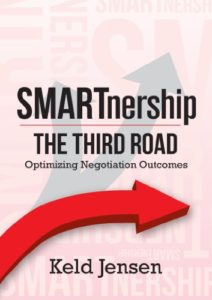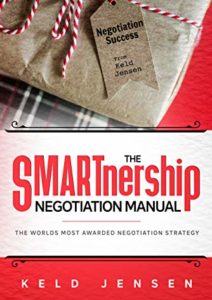Have you ever thought about collaborating during a negotiation instead of taking sides? In this Expert Insight Interview, Keld Jensen discusses collaboration and negotiation. Keld Jensen has more than 30 years of experience in negotiation, communication, and international business. He is an award-winning managing director of a Scandinavian company, professor at prestigious Universities, and contributor at Forbes.
This Expert Insight Interview discusses:
- How to collaborate during a negotiation
- Common missteps
Embrace collaboration
Nowadays people still have not revolutionized the concept of negotiation. Negotiation is still seen as a fight between two sides, but it does not have to be. Negotiation can be a collaboration between two sides as well. There is a way to make it to be a win-win situation for both sides. The key to good negotiation is to set a variety of rules on how to negotiate. These rules should include transparency, trust issue, and how to split value-creating. Both sides need to be as verbal as possible when creating the rules. These rules are essential to make the negotiation easier because this is the same situation as if two athletic teams would play a game without knowing the rules. Another thing that makes the negotiation successful is the confidence two sides have in each other. However, trust is not built by words but rather by actions. So, honesty and openness are the best ways to create trust between the parties. And the reason why trust is so important is that trust has monetary value in this case. The higher level of trust the lower transactional costs such as lawyers, contracts, etc. – thus, higher profits.
Missteps
The main mistake that people make in negotiation is that they do not listen to their counterparts. They usually know what they want to say upfront so that is why they do not really listen to the other side. The good negotiator will come out of the negotiation with enormous knowledge of the other side’s view. Thus, when your counterpart is talking, it is important to try to understand the counterpart’s purpose, cost, liability. For example, if somebody asks you if you can deliver something in two weeks, instead of saying simply yes or no, try to learn why is it important to be delivered in two weeks. Simply, instead of selfishly focusing on our gain we should think of our counterpart’s gain as well. Especially in B2B, negotiating a deal can be career-enhancing or career-limiting, thus it is important to think how this negotiation creates value for both sides. Besides, too many negotiators focus solely on price while there are so many other variables that can create value for the customers as well.
Our Host
John is the Amazon bestselling author of Winning the Battle for Sales: Lessons on Closing Every Deal from the World’s Greatest Military Victories and Social Upheaval: How to Win at Social Selling. A globally acknowledged Sales & Marketing thought leader, speaker, and strategist, he has conducted over 1500 video interviews of thought leaders for Sales POP! online sales magazine & YouTube Channel and for audio podcast channels where Sales POP! is rated in the top 2% of most popular shows out of 3,320,580 podcasts globally, ranked by Listen Score. He is CSMO at Pipeliner CRM. In his spare time, John is an avid Martial Artist.

















Comments